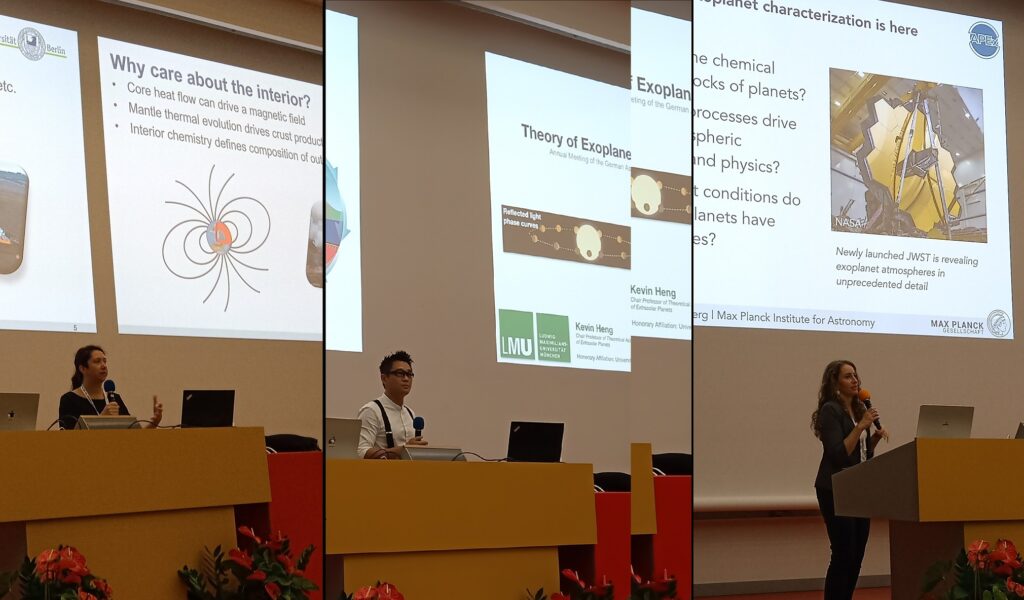Last week, from 11th to 15th September, astronomers and space scientists from Germany and beyond gathered in Berlin for the annual assembly of the German Astronomical Society.
Around 240 people attended the conference over the week, whose subjects spanned fields such as black holes and neutron stars, stellar physics, planetary science, interstellar medium, astronomy & education and outreach, all under the motto “Cosmic evolution of matter on all scales”. All these scientific presentations were accompanied by social events & networking opportunities, starting with an evening reception on Monday, a social gathering in the Carl Zeiss Großplanetarium celebrating Kopernikus’ 550th birthday and with it German-Polish scientific exchange on Wednesday, and a public outreach talk about the cosmic matter cycle given by Andreas Burkert of LMU München.
Of course, we also had a rich buffet of exoplanet content there. This year’s prestigious Schwarzschild lecture, held by SPP 1992 project PI Thomas Henning from MPIA Heidelberg, was in part about understanding the formation of planets. In plenary talks, SPP 1992 board member Lena Noack from FU Berlin talked about the interior of rocky planets and how that’s connected with habitability, Kevin Heng from LMU München spoke about what can be inferred about an exoplanet atmosphere from observations, and Laura Kreidberg from MPIA Heidelberg told us about recent advances in atmosphere characterization specifically thanks to the James Webb telescope.

In the discussion regarding the Denkschrift of the German Astronomical Society, the strategy paper for German astronomy in the next ten years, our SPP coordinator Heike Rauer as well as board member Ansgar Reiners led the discussion about planetary systems& habitability.

During the splinter meeting on exoplanet diversity, convened by Heike Rauer and many members of our programme committee, we had four sessions of detailing and discussing all sorts of exoplanet science, be it atmosphere, observations, formation models, or star interactions. Riveting invited talks by Andreas Quirrenbach from the Heidelberg Observatory, Sascha Quanz from the ETH Zurich, Monika Lendl from Geneva University, and Christiane Helling from the Austrian Academy of Science provided us with many exciting insights into their works.

Meanwhile, the outreach program also got its time to shine. In the outreach splinter meeting, Björn Voss from the Planetarium Hamburg presented work on the upcoming exoplanet-focused planetarium show developed by his crew in joint effort with the SPP 1992, while SPP 1992 outreach team members Ruth Titz-Weider and Ludwig Scheibe participated in an advanced teachers’ training course on space science and giving and introduction into exoplanet science there.

Overall, it was a week busy with science, discussion, networking, and most important of all: Learning about the universe and our place within it. Many thanks to the organizers both from the AG and the local team from the TU Berlin who made all of this possible!

![Conference group picture. Credit: sevens[+]maltry](/exoplanet-diversity/wp-content/uploads/2023/09/160_s.jpg)